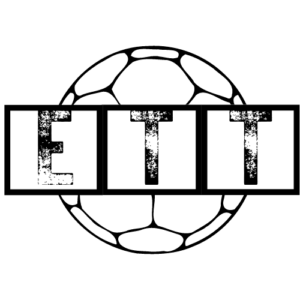Ukraine-Russia football might be heading to their dark days as Yugoslavia in 1992 due to the ongoing Russian invasion to their neighbour.
Ukraine and Russia have to sit out in the upcoming UEFA world cup playoff at the end of March for different reasons. The former has been bombarded by Russian troops which forced them to have difficulty in consolidating their national team. Therefore, they are unlikely to send the squad playing against Scotland. Their match has been postponed until June, probably at the same date as the international playoff.
Meanwhile, the latter has been officially suspended by FIFA and UEFA in all competitions. Sbornaya, the nickname of Russia national team, have not only been kicked out in the world cup playoff, but also potentially UEFA Nations League if the war does not stop. They were bound to play host to Poland before the sanction was imposed.
Furthermore, their clubs have been barred from participating in any European competitions. Spartak Moscow, which was set to face RB Leipzig in Europa League round of 16, had been expelled from the competition. Ukraine-Russia football might have to deal with this situation longer than expected since there has been no sign of ceasefire yet.
Their situation is strikingly similar to that of Yugoslavia in 1992. Because of their active participation in the Balkan War from 1992 to 1995, they were banned by the world football governing body. As a result, they were unable to compete in EURO 1992, as well as any other competitions until December 1994.
Ukraine-Russia Football Faces Grim Future as Yugoslavia in mid 1990s.
Yugoslavia’s Golden Generation Premature End
Yugoslav football experienced a rollercoaster ride in the 1990s. The world witnessed the rise and fall of their illustrious golden generation.
At that time, the band of young talents such as Robert Prosinecki, Zvonimir Boban, Branko Brnovic, Davor Suker, and Pedrag Mijagovic emerged to help their nation win their first ever international title. They had a good reason for such ambitious target. Prosinecki and Co had clinched their first World Cup U20 in 1987 after beating (West) Germany led by Andy Moeller on penalties.
They had first opportunity in world cup 1990. Those young players, backed up by talented seniors like Darko Panchev, Dragan Stojkovic, and Srecko Katanec, were ready to make their mark in world cup history. Despite a 4-1 loss to Germany in the opener, they easily advanced from the group stage and defeated Spain 2-1 in the round of 16. Unfortunately, Yugoslavia’s World Cup campaign was cut short in the quarterfinals after they were defeated on penalties by Argentina.
In the following year, Red Star Belgrade won Champions League 4-3 on penalties over the the French side, Marseille in the summit. It was the last time an Eastern European side lifted the trophy.
Their next chance came in EURO 1992. They had qualified convincingly plus were tipped as the favourite. Unfortunately, the Balkan War broke a few months before the kick off. The team, which was once a unified entity comprised of players from Serbia, Croatia, Bosnia and Herzegovina, Montenegro, Slovenia, and Macedonia, fell apart. Croatian-born players such as Prosinecki, Suker, and Boban left the team for their own independent nation, and their Bosnian-born head coach, Ivica Osim, resigned 19 days before the first match, followed by Bosnian players departure. On the top of that, FIFA sanctioned them from any international tournaments and had Denmark replace them just several days before the championship kickoff. The Danes surprisingly won the tournament.
That was the beginning of their end. All Yugoslavian clubs were banned from any competitions till 1995. Dejan Savicevic and Co who were seeded with Russia and Greece in World Cup 1994 qualifiers (both teams managed to made their debut) was officially ruled out until EURO 1996 qualifiers. They just made their return in World Cup 1998, with most of their stars including Stojkovic, Savicevic and Mijatovic already turning late 20s or early 30s. They headed to exit in the round of 16. On the contrary, Croatia went all the way to the semi final. Yugoslavia’s golden generation withered before it even blossomed.
Ukraine-Russia Football Looming Downfall
As Russian invasion intensifies, Ukraine-Russia football is likely to face the same bleak future. So long as the conflict is yet resolved, their international fixtures remain in the dark.
Ukraine is unquestionably suffering more than Russia. They are the World Cup U20 champions in 2019, managed to progress to the quarter final in EURO 2021 and have the luxury of more promising squad with Manchester City man Olexander Zinchenko, Atalanta’s Ruslan Malinovsky, Benfica forward Roman Yaremchuk, the winning goal scorer while thumping Sweden in EURO 2021, Artem Dovbyk plus young talents such as Bohdan Mikhaylichenko (24 years old), Serhiy Buletsa (23), Mykola Shaparenko (23) and two shot-stoppers, Andry Lunin (23) and Anatoly Turbin (20). Olexander Petrakov’s side was also unbeaten in the qualifiers.
Despite not being suspended, the invasion disrupts Ukraine’s preparations for the World Cup playoffs and may prevent them from participating in any upcoming matches, including UEFA Nations League 2022-2023 and possibly EURO 2024 qualifiers. Andrey Pyatov and company, who are on the verge of qualifying for their second World Cup final round, must shift their focus to fighting for their lives.
Meanwhile, Russia’s last campaign in EURO 2021 was underwhelming, and the current team under Valery Karpin hasn’t shown much improvement in the Qatar 2022 qualifiers. Aside from Monaco’s Alexander Golovin and Atalanta’s Alexey Miranchuk, few Russian internationals shine outside of their domestic league. Their demise appears more certain with the possibility of an ongoing suspension, but their presence in the major tournament will not be missed as much as Ukraine’s.
Main Image Credit Embed from Getty Images

